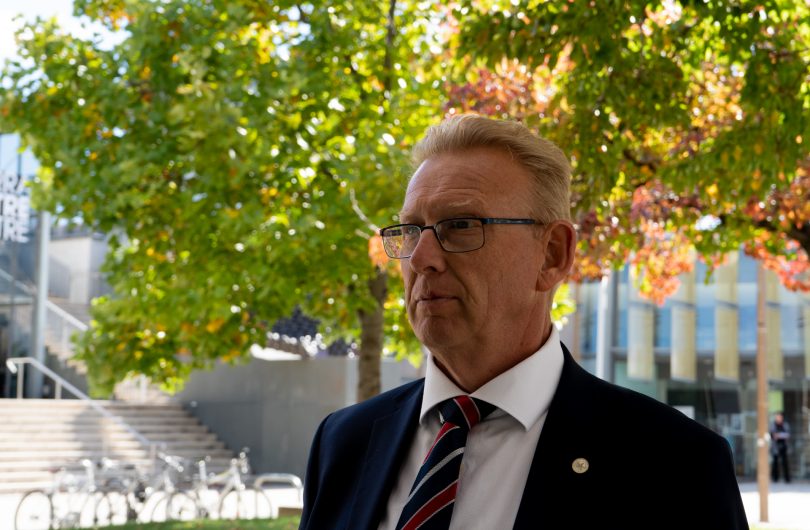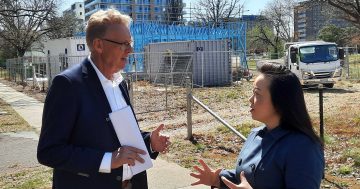
Canberra Liberals housing spokesperson Mark Parton: a tenant’s story was not so straightforward. Photo: Dominic Giannini.
Public housing – it’s a highly charged, headline-grabbing issue, but often more complex than your average opposition member might admit.
With the government spending a billion dollars over a decade on its renewal program, the ACT housing market on fire and demoralising waiting lists, keeping a watch on public housing provider Housing ACT is a good thing.
There is enough going on for both media and opposition to get their teeth into.
But not all reports that emerge from wannabe tenants or those unhappy with their accommodation or treatment are as simple as they seem at first glance.
In a previous life, I spent my fair share of time fielding calls from people complaining about Housing ACT, telling desperate families they would have to join the queue or that their property was uninhabitable because it needed repairs and a tradie hadn’t been seen in months.
It didn’t take long for hapless bureaucrats, worried about a bad story, to get on the front foot to fix the situation, testament to the media’s power to hold power to account and make things happen.
But there can be unintended consequences for those bypassed on the waiting list, for example.
And it is a situation that favours the media-savvy, or those desperate enough to spin a convincing yarn which, in the modern world of social media, news churn and competitive outlets, lends its self to those seeking a quick win.
A quick video, an emotional appeal and the usual government scandal, it can all make for a compelling story.
Liberal housing spokesperson Mark Parton thought he was on such a winner recently, but word has it he was crestfallen after the facts of the case he tried to champion were laid out.*
Like the lives of the people he often tries to help, the situation was much more complicated than he realised, something Housing ACT, not a perfect beast for sure, has to manage all the time.
Let’s hope he can continue to keep the government honest on such a crucial issue, but do his homework.
We should all remember that the carnival will move on, but the often vulnerable folk in public housing are left behind after the media attention wanes.
There are lessons for both journalists and politicians in this – ask the right questions, check the facts, don’t assume who is a victim or oppressor, or rush to judgment. Getting it wrong only makes it harder when a more deserving case emerges that is really worth the headlines.
By all means, hold government to account, but remember that reality is often more complex and untidy.
For Housing ACT, that means managing thousands of properties, tenants with multiple issues, and juggling finite resources, including ageing stock it is loath to spend precious funds on, especially if it can be cashed in to build more homes elsewhere.
That doesn’t make it immune from criticism, just not the heartless bureaucracy many make it out to be.
The issues remain – insufficient properties, many shut out of the private rental market and a need for better management of what is available.
It’s a story that needs to be told; we just have to be careful how we tell it.
*Region Media has chosen not to detail allegations made by Mr Parton regarding public housing.
In an article published by the ABC, Housing ACT has rebutted a number of statements from Mr Parton which they say are factually incorrect, including that notices to evict are a last resort, issued only when a property is unsafe or uninhabitable, that families are not evicted into homelessness and that the agency will offer tenants relevant support services to find suitable accommodation.
Further, the allegation that the house in which the tenant lived contained lead has also been retracted.





















